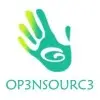与 Ava 聊天 - 您的人工智能业务顾问
大家好,我是 Ava,您的 AI 指南,可帮助您增强业务!
无论您已经在经营一家企业还是梦想创办一家企业,我们都会用AI赋能威客帮助您将愿景变为现实。分享您的业务目标,我们将共同创建一个项目,供我们才华横溢的威客竞标。让我们让您的愿景成为现实!
我已经有一份事业
我要创业
将对话发送到您的电子邮件时出现问题。请稍后再试。
您每小时只能保存一次对话。请稍后再试。
你们的谈话太短了。继续与 Ava 聊天以启用保存功能。
The 10 best tools for web development
Cultivate your skills as a web developer with these 10 tools. They'll streamline your workflow and help you complete projects quickly and efficiently.
2019年5月6日 • 阅读需8分钟
由Adam S.于2020年1月21日进行更新

Content Manager at Freelancer.com
复制到剪切板失败,请修改权限后重试。
复制到剪贴板。

Web development is stressful. These tools take the pressure off.
Developers get busy. Especially when freelance, it’s easy to go from being in full and total control of workload and events, to utter chaos – in the space of half an hour. Maybe because a regular client needs a vital job done immediately, or it could be just because you hit a snag on a project. Or both!
The way everything moves these days is astounding, and technology is where it moves fastest. There’s a need to adjust how we work to change with the times, and the faster we work, the more we look for quicker and easier ways to streamline our load. Every developer could do with five or 10 minutes here and there to keep up with the latest trends, advances and tools. It isn’t always possible to put your work down and your feet up, so we’re here to help.
Time saving tools and systems are always a plus. When you work freelance, you’ll often need to collaborate or chip in with a client’s team. Tools which make that quicker and easier to organize can save a tot of time, hassle and effort.
Keeping track of different clients and projects can end up taking up a chunk of your day. When you need to be writing code, products which help with organizing things are worth finding.
So, we’re going to look at a few tools which may just help to remove some of your stress. In fact – they may even get you out of the office and onto the sofa quicker too….
Trello
If you’re a freelance web developer, and especially if you tend to need to collaborate with other freelancers, Trello is a must have tool. This is basically a project management app, and a personal organizer. You can use Trello to help organize any task and if you’re a serial list maker, Trello is made for you.
You can divide up your own Trello in any way you see fit – so it’s easy to match it to the way you work or to the way your own brain naturally leans toward keeping track of things. It’s a great way to never forget that important update or revision of content ever again.
HTML5Boilerplate
Put together by HTML5 evangelist and serial open source developer, Paul Irish, HTML5 Boilerplate is one of the most popular front end tools on the web. What you get with Boiler Plate is more than just a template. As the name suggests, the concept enables repeated use of recycled code which you can carry over from project to project. Essentially, Boilerplate gives web developers a head start.
The product is very friendly for cross browser performance. The concept is all about accelerating website development. Let’s face it, that will be music to the ears of most busy freelancers. Boilerplate makes work more efficient. It will enable developers to offer decreased costs and increased work rates in a very competitive arena. That, coupled with true open source accessibility, means HTML5 Boilerplate is sitting pretty in 2019. It doesn’t look like disappearing any time soon.
[[related_portfolios=[tag="Website Design"]]]
MongoDB
MongoDB makes cloud based data very accessible, flexible and affordable for freelance web developers. Its popularity is based on a design that’s very easy to pick up on, enabling a quick learning process without too many hiccups. You can find a driver in almost any language and that’s improving all the time. The ethos behind MongoDB seems to be one based on a will to make the service convenient and quick to use. This approach is being reinforced by an easy interface and validated by a strong following of loyal developers.
There’s a perfectly good open source version of MongoDB. The company also offer a couple of subscription levels for commercial applications.
Increasingly widescale use of MongoDB seems to be driven by a very available community and excellent company support. The service is truly elastic and extremely sympathetic to scalability. MongoDB was very big in 2018 and it’s hard to see that curve doing anything different in the current and coming years.
react.js
React.js is a JavaScript library that is solely focused on the task of user interface development. It first surfaced back in 2011 at Facebook, and it’s been going from strength to strength ever since. Because react is such a specialized tool, it allows developers to pick and choose what they use to form frameworks and develop other parts of an app. This seems to be one of the reasons it suits a lot of freelance developers who work in a particular way.
React is a fully open source tool and it lends well to modern app development and responsive user interfaces. The reason it works well for busy developers is that it makes designing complex user interfaces relatively simple. You only need to produce a simple design of the UI in each of its states – react does the rest and will render it all for you.
It’s considered to be an easy method to debug. The independent nature of react also means you can use whatever you want in the rest of your stack. That flexibility is proving to be very popular in 2019. It appeals to freelance developers who wish to take some of the pain out of making beautiful and functional interfaces.
Codepen
Codepen is another great resource for developers and it’s a brilliant place to pick up tips and tricks. Run as a device which looks to improve both users and technology, Codepen has been bringing people together since 2012 and was founded by a group of full stack developers. It’s a completely open source place where you can launch a site and get valuable insights into your work from experienced members of the community.
Codepen boasts almost 17 million visits per month and registered users can post snippets of code, referred to on the site as pens. Developers then receive feedback, or even solutions to problems they’re having. The community also serves as a showcase for developers and their methods.
The true nature of Codepen is one of a code editor, and users can use it to try out ideas, share progress with a client, or simply as a medium to test new work. The atmosphere at Codepen is open and the place is run to promote inspiration, as well as more efficient and educated coding.
Freelance Website Design Experts


PHP
JavaScript
Python
Website Design
Graphic Design


PHP
JavaScript
Website Design
Graphic Design
Logo Design


PHP
C Programming
JavaScript
XML
.NET


PHP
JavaScript
Mobile App Development
iPhone
WordPress
Ionic2
Ionic first appeared back in 2013 and it’s a very effective framework for mobile app developers that’s gaining much popularity. The tool was limited until very recently, by the fact that you had to use Angular.js for user interface development. However, the latest version of Ionic lets developers choose from Angluar, Vue or React.js when building an interface. That change is seeing increased uptake of this excellent framework option among the freelance mobile app development fraternity.
Ionic is fully open source and there’s good discussion and community around the tool. It boasts a loyal fanbase of 5 million developers based in more than 200 countries worldwide. That should be plenty of people to provide support and supply inspiration when you get stuck. It boasts great performance gains and a very quick and easy to use command line facility. Those features are doing nothing to hurt this tool’s chances with hardworking, busy developers.
Among busy freelancers, more and more often working remotely, tools like Ionic are only set to increase in popularity. Ionic has built a winning combination of ease of use and strong community which is seeing it gain a large chunk of the market in 2019.
Atom
Atom is a text editor for developers which is big on the concept of remote collaboration. This makes it an excellent tool for the modern freelancer and enables easy communication. When you need to work with a company, an individual client or with another freelancer as part of a remote team, Atom helps a lot.
Atom also offers a great auto-complete feature. It’s designed to save large chunks of time across a project and indicates a very developer-friendly ethos. You can use multiple panes in Atom, for when things get a little busy and you need to work on a couple of jobs at once. The browser is also based on a file system design. This is great when you need to break things down into single files, or even work on several whole projects simultaneously, in just the one window.
A lot of thought seems to have gone into making Atom a good resource for busy developers who want to work together with clients or colleagues, from anywhere. This makes it another great tool for modern conditions, and it’s open source .
Intellij IDEA
Intellij IDEA is an integrated development environment (IDE) from Jetbrains. It’s available on an open source licence , and also in proprietary form. If you want to use this commercially, and retain ownership of the code you write, you’ll need to pay a cost of $650 for the first year. That cost falls to $389 by the third year .
What you get for your money, or for your open source licence, is a very capable IDE which works well to produce time savings for busy developers. Intellij IDEA has an extremely smart code completion feature. It works by monitoring classes, methods, fields and keywords against a continually analyzed context.
You do get a lot of intelligent options with this IDE and it goes as far as analyzing your code while it indexes. Then it offers suggestions to ammend inconsistencies. The cost will put some developers off, but this is like having an extra pair of eyes on the job, and an extra pair of hands when you’re writing.
Visual Studio Code
Visual Studio Code is a source-code editor from Microsoft, designed for use with almost every programming language there is. This code editor has become extremely popular in the last few years and many regard its customizable features to be a big draw.
Microsoft have made this tool a very versatile one. It supports debugging, does intelligent code completion and even caters for snippets. There isn’t much that a developer is going to miss with this code editor. Just in case, though, there’s a full range of plugins available within the accompanying repository.
Visual Studio Code is a fully open source package and works for Windows, Linux and MacOS. It’s important to realize that VS Code isn’t a full IDE. What you get here is a very streamlined code editor which is easy to fit around your style of working. You get a tool that’s designed to get through the code-debug cycle quickly and conveniently. There’s even a portable version which you can run in the location of your installation – on a USB drive, for example.
GitLab
Although Gitlab isn’t free, it provides an almost unrivalled service if you’re working with a larger team to get a bigger project done. This is a full development operations tool, and it allows every team member to work together for the course of the whole project. Gitlab exists to reduce delays, aid cooperation and cut back on the red tape that often hampers larger development projects.
The concept here is simple. You eliminate using different tools in different locations to accomplish separate tasks in separate teams. Instead, Gitlab allows every single person on the project to be able to access the same thing in the same place. What it does, in a nutshell, is get problems solved more quickly. The tool was written from the gound up with the sole purpose of enabling better teamwork and reducing the time it takes to build products.
Featured Work in Website Design

Interior Studio Landing Page
by balasinski

Website Design
by skrbic81

Website design for App Development
by skrbic81

Web, App and Brochure Design
by fenixmuppet
告诉我们你需要做什么
输入您的项目名称
相关故事
与我们的Technical Co-Pilots进行沟通来获得项目帮助
专为您推荐的文章

Learn the complete end-to-end process of building a successful website for your business in our comprehensive guide
19 min read

Effective social media marketing is crucial your brand. Learn how to hire a social media expert to bring you maximum results for minimum investment
10 min read

Struggling to come up with the best idea? Our exhaustive guide runs through the idea generation process to help you tap into your inner Steve Jobs.
10 min read

A million dollar business idea is useless if it remains written on a napkin. Learn the best ways of securing funding to build your dream.
26 min read
谢谢!我们已通过电子邮件向您发送了索取免费积分的链接。
发送电子邮件时出现问题。请再试一次。
加载预览
授予地理位置权限。
您的登录会话已过期而且您已经登出,请再次登录。




